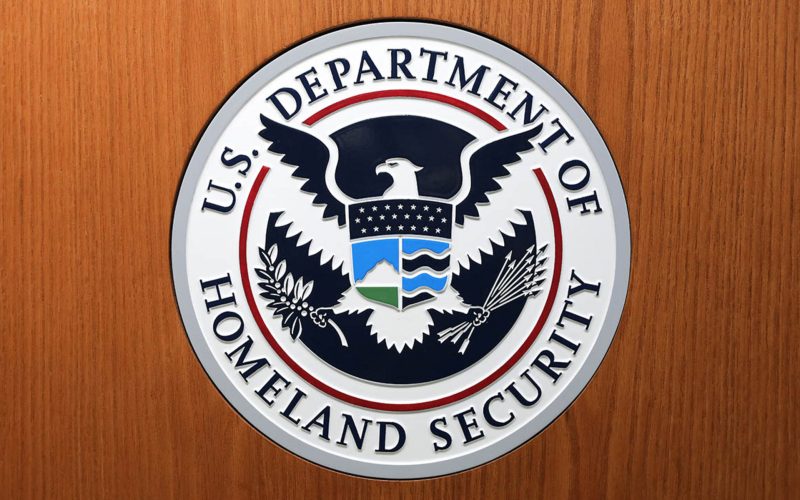
The Department of Homeland Security seal | Chip Somodevilla/Getty Images
In a report published early this week summarizing the most serious terrorism threats the nation faces, the Department of Homeland Security said the spread of false narratives and information was the gravest.
The report blames the “proliferation of false and misleading narratives” which have led to the current “heightened threat environment.”
The report specifically mentions “unsubstantiated widespread election fraud and COVID-19” as the subjects most vulnerable to the spread of false information.
The DHS uses the acronym MDM to refer to “mis- dis- and mal-information,” encompassing the three varieties of online content that is currently undermining public confidence in government.
The bulletin did not identify specific propagators of “MDM.”
The DHS claims that while the circumstances behind the specific heightened threats have not changed significantly over the last year, the “volatility, unpredictability and complexity of the threat environment” has certainly increased as a result of spreading false information.
The report also points a finger to “foreign terrorist organizations and domestic threat actors” who are also using “false or misleading narratives online to sow discord and undermine public trust in government institutions” and this could lead to violent attacks against government and social institutions.
In summer 2021, the DHS designated combating domestic violent extremism as a “national priority area” for the first time.
At that time, the DHS put out a National Terrorism Advisory System (NTAS) Bulletin implying that if Americans questioned and challenged the COVID shot mandates, they would be considered potential “Domestic Violent Extremists” (DVE).
Following the release of the bulletin, some commentators criticized the Biden administration for focusing on misinformation and “domestic violent extremism” as Homeland Security issues, given reports of the Department of Justice last fall labelling parent protesters at their local school board meetings “domestic terrorists.”
DHS Secretary Alejandro Mayorkas has complained about the availability of “encrypted channels of communication” which were an obstacle for law enforcement “well before January 6, 2021,” in a reference to last year’s riot at the U.S. Capitol building.
For now, without the ability to surveil all domestic communications, the DHS has created online resources to combat “MDM.” These include a pamphlet entitled “Media Literacy and Critical Thinking Online” which suggests that misinformation is increasingly a problem since people are spending more time online because of COVID lockdowns.
DHS provides links to other Federal agencies, including links from the CDC, a COVID-19 “disinformation toolkit” from the DHS Cybersecurity and Infrastructure Security Agency, and “Resilience Series” graphic novels illustrating characters evaluating their sources of information and uncovering a Russian disinformation campaign.



Shocking report. “Misinformation” is depicted as anything that differs from the official government line about anything.
Also shocking is the DHS publishing a novel as an accurate source of information to counter “disinformation,” and to expose alleged Russian “disinformation.” Since when do government agencies publish novels as a way of informing the public about facts in the real world.
The elitocracy is the greatest threat to the nation.